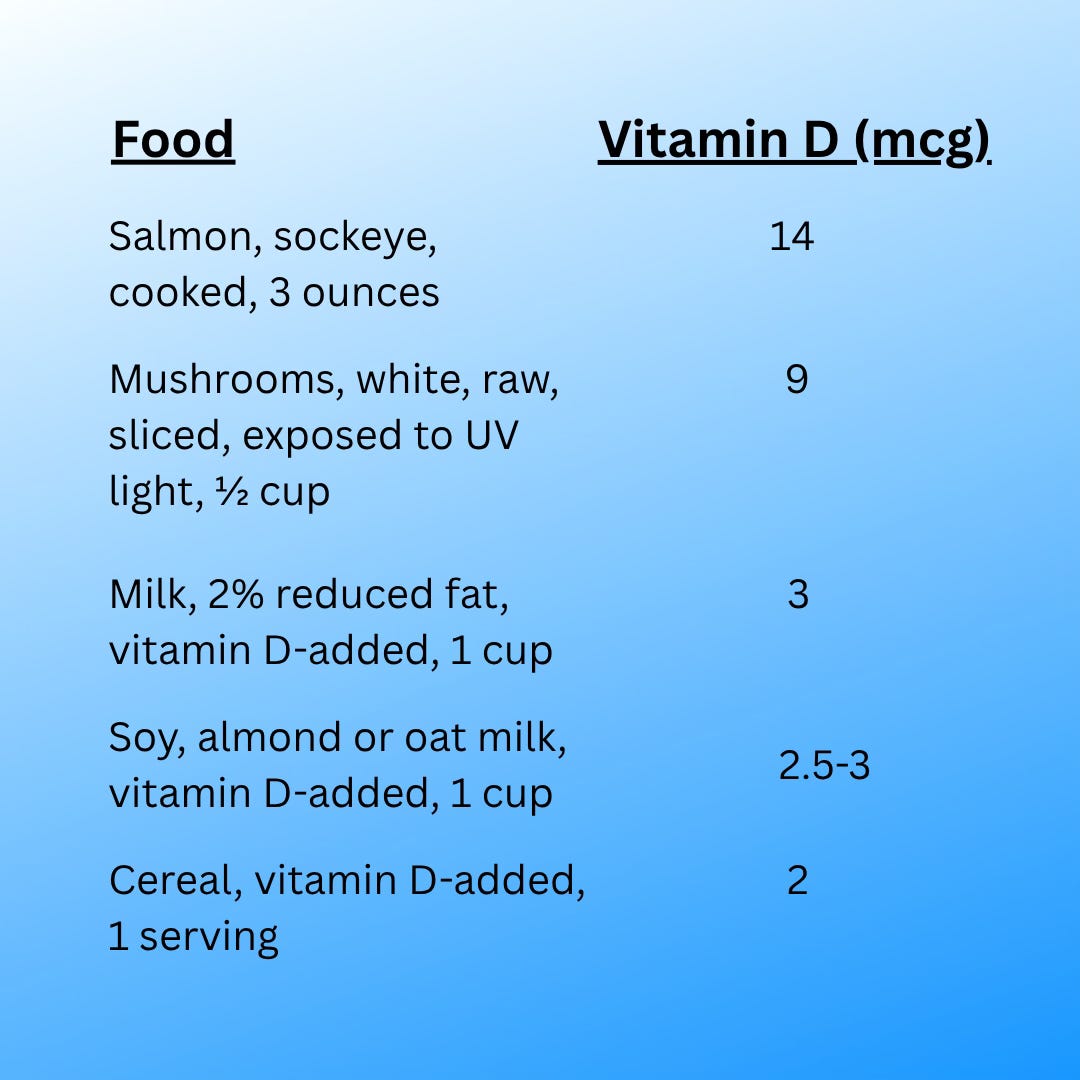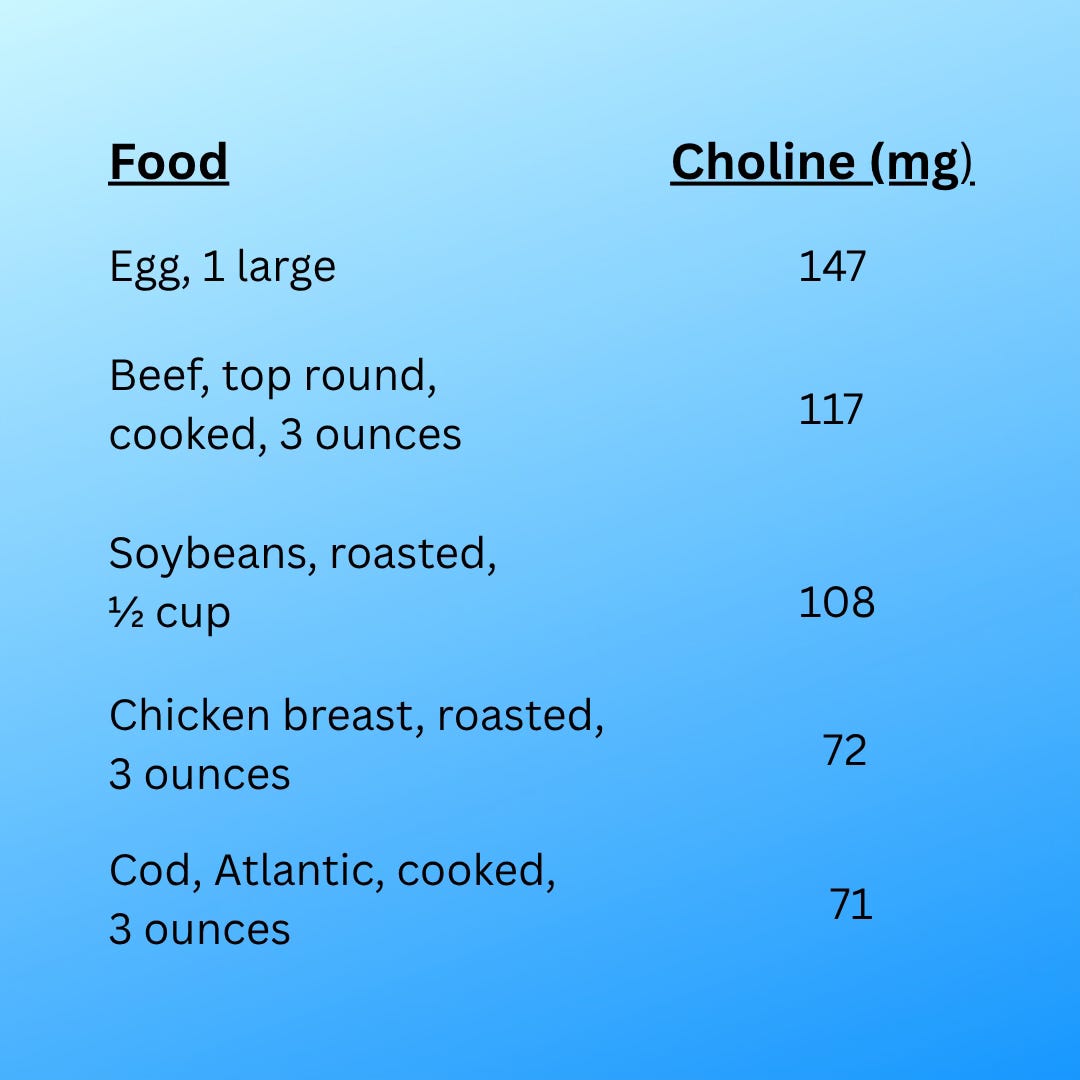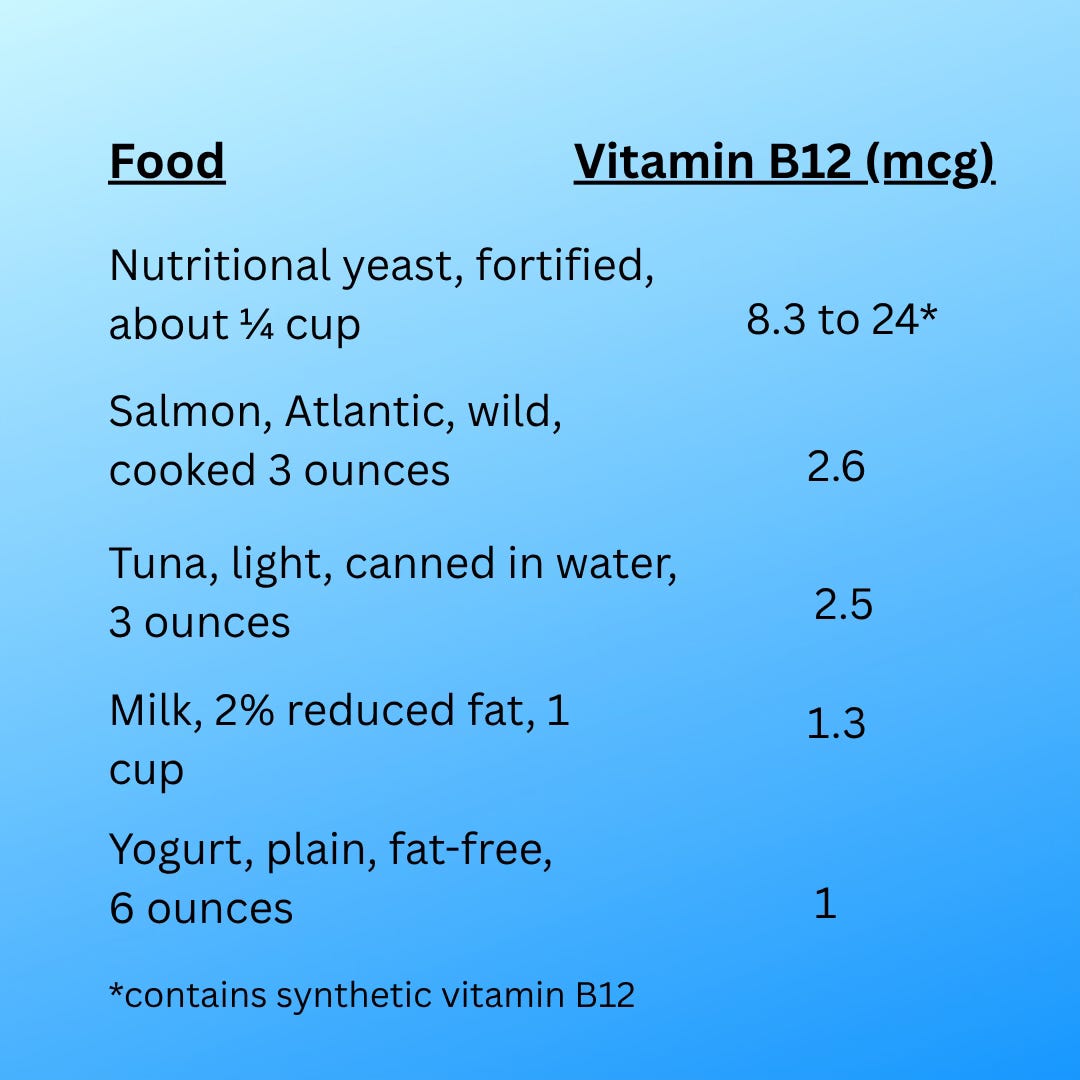Feed Your Brain
Learn about the nutrients that support brain health during perimenopause and beyond.

Trouble concentrating, finding a word, or remembering why you walked into a room is common in perimenopause. Though it’s not an actual medical condition, so-called “brain fog” can be unnerving, and you may be wondering if it’s the start of dementia.
Midlife women often experience changes in cognitive function, a term that encompasses memory, reasoning, and learning. As estrogen levels decline during the transition to menopause, brain cell function starts to slow, but research suggests it’s temporary.
You may think your fuzzy perimenopause thinking will last forever, but that’s unlikely. A 2021 study published in Scientific Reports suggests that the menopausal brain typically adapts to less estrogen with time. As menopause progresses, the density of estrogen receptors in certain regions of the brain increases, indicating that the brain is trying to compensate for declining estrogen levels by becoming more sensitive to estrogen.
A Woman’s Risk for Alzheimer’s Disease
Though brain fog is not dementia, women are more prone to Alzheimer’s disease (AD), a form of dementia, and AD starts earlier in life in women’s brains. Nobody knows why, but the fact that estrogen supports the brain by reducing inflammation and plaque formation associated with AD may provide a clue. In addition, estrogen loss after menopause has been linked to increased aging of nerve cells and AD risk.
As you probably know, AD is not all down to estrogen loss. It’s a complex disease with no single cause. Genetics, lifestyle, and high blood pressure or type 2 diabetes may contribute to AD, but aging is the greatest risk factor.
As a registered dietitian, I’m focused on the role nutrition plays in protecting the brain from all forms of cognitive decline. Here’s how certain nutrients support brain health.
Vitamin D
The research about the role of vitamin D in brain health is interesting, but it’s far from definitive.
A 2025 study presented at the American Psychiatric Association (APA) 2025 Annual Meeting found an association between higher levels of vitamin D in the blood of female participants and better cognition. Certain parts of the brain, including the hippocampus, were larger in women with higher blood vitamin D concentrations, which may help preserve the function of those areas. The hippocampus is involved in short- and long-term memory, verbal memory (remembering the right words to say) and other functions.
Experts are unsure just how vitamin D supports the brain, but other recent findings, published in 2025 in the American Journal of Clinical Nutrition, suggest that it may influence aging by helping to preserve telomeres. In aging, cells, including those in the brain, lose their ability to divide and function properly. Telomeres are the protective caps at the tips of chromosomes in cells that are necessary for cell division. Every time a cell divides, telomeres become shorter until they’re too short to perform their job and cell production stops.
Overall, the findings from studies on vitamin D are mixed, making it difficult to say for certain whether vitamin D supplementation plays a role in preventing cognitive impairment and dementia. However, women should aim to get the suggested amount of vitamin D every day to help support brain health and all the bodily functions that involve vitamin D.
Adults need 15 micrograms (mcg) of vitamin D daily, but women in the U.S. consume an average of just 4.2 mcg of every day. It can be difficult to meet the suggested intake for vitamin D with food alone because few foods contain natural vitamin D.
If you can’t get 15 mcg from food, take vitamin D supplements to make up the difference. Supplements with vitamin D3 maintain the highest levels of vitamin D in the blood. Don’t take more than 100 mcg of vitamin D daily unless directed by your doctor. More vitamin D isn’t necessarily better for you.
Source: https://ods.od.nih.gov/factsheets/VitaminD-HealthProfessional/
Magnesium
Magnesium is having a moment among menopausal women who take it to sleep better, reduce hot flashes, and improve mood, but it also plays a role in proper brain function.
A 2023 European Journal of Nutrition study of men and women ages 40 to 73 found that consuming more magnesium was associated with greater brain volume, particularly in postmenopausal women. A greater brain volume is typically associated with better brain function. Though it’s unclear exactly how magnesium contributed to preserving cognition in this study, the mineral may play a role in deflecting cell damage and inflammation in the brain.
Experts suggest women consume 320 mg of magnesium daily. Yet, nearly half of all Americans get about half the recommended amount. It’s best to consume magnesium from food, but small amounts of supplements are helpful for bridging small gaps in food intake.
You may need more magnesium if you take medications that treat reflux disease, antibiotics, or certain blood pressure drugs. Ask your pharmacist if the prescription and over-the-counter medications you take affect magnesium levels in the body.
Read more about magnesium and get a list of foods and their magnesium content here.
Choline
Choline supports cell membranes in the brain and elsewhere, which helps to preserve cells’ inner workings. The body also produces acetylcholine, a neurotransmitter that plays a role in memory and thinking, from choline.
Some studies show that people with AD have lower levels of cholinesterase, an enzyme that converts choline into acetylcholine. These studies have lead to the idea that higher choline intake may lower the risk for cognitive decline. However, large randomized clinical trials have yet to prove this theory. Still, choline shows promise for preserving brain function.
A 2021 Behavioral Neurology observational study observed that consuming between 187 and 400 mg of choline daily reduced the chances for low cognitive function by about 50% in people over the age of 60 compared to getting less than about 188 mg of choline daily.
The National Institute of Medicine suggests women consume 425 mg a day of choline, but the average daily intake in women is 278 mg. A 2010 American Journal of Clinical Nutrition trial suggests choline needs increase after menopause. Some choline is produced in the body. Though estrogen plays a role in that process, there’s no special recommendation for postmenopausal women.
Choline is found in higher amounts in protein-rich foods, and women who avoid or limit animal foods may not consume enough choline. Multivitamins contain little, if any, choline. If you aren’t getting enough choline through food, consider a separate choline supplement, but don’t exceed 3,500 mg daily.
Source: https://ods.od.nih.gov/factsheets/Choline-HealthProfessional/
Vitamin B12
Vitamin B12 helps maintain myelin, a compound that coats neurons which are nerve cells responsible for communicating throughout the body. Researchers believe that myelin shrinks with age, slowing down processing and reducing cognitive function.
An estimated 3% to 43% of older adults in the U.S. have a vitamin B12 deficiency. People with inadequate vitamin B12 intake or those who take certain medications for reflux disease or diabetes are at greater risk for low vitamin B12 levels. Aging also limits the body’s ability to absorb natural vitamin B12.
Vitamin B12 is found naturally only in animal foods. Women over the age of 50 should rely on synthetic B12, the kind found in dietary supplements and fortified foods, to meet most of their vitamin B12 needs, which is 2.4 micrograms daily.
Older people produce less stomach acid and may absorb less natural B12. Synthetic vitamin B12 is processed without stomach acid, making it more available to the body.
Women who avoid or skimp on animal products or follow a very low-calorie diet or one that restricts fortified grain foods may have difficulty getting the vitamin B12 they need. Vitamin B12 deficiency can result in permanent nerve damage.
Source: https://ods.od.nih.gov/factsheets/VitaminB12-HealthProfessional/
Protein
The amino acids in food protein are the raw materials for the body’s production of brain cells and neurotransmitters – compounds that allow nerve cells to communicate with each other – as well as other substances that support brain health.
A 2022 American Journal of Clinical Nutrition study that followed more than 77,000 men and women for more than 20 years found that eating more protein was related to less cognitive decline later in life as compared to eating less protein. Legumes, fish, and lean poultry were the best at protecting brain function, while processed meat products, like salami, cold cuts, and hotdogs, were associated with poorer cognition.
In a 2022 Nutrients study with more than 6,900 people without cognitive impairment or dementia at baseline, researchers concluded that a higher protein intake protected the brain over time. An extreme decline in protein intake for most food groups significantly increased the risk of cognitive impairment in the people in the study.
Animal foods supply all the essential amino acids you need and certain plant foods, such as soy, quinoa, pistachios, and buckwheat do, too. Essential amino acids are the ones your body cannot make on its own and must get from good. The right combination of plant foods also supplies essential amino acids.
Protein-rich foods contain magnesium, choline, and vitamin D, and, in the case of plant-based protein, fiber and phytonutrients, which are powerful compounds that protect cells, including those in the brain.
Piling on the protein does not automatically protect the brain. Protein needs are based on body weight. This post will help you determine your daily protein needs and figure out what to eat to satisfy your requirement.
Multivitamins
Multivitamins contain a mixture of vitamins and minerals that help support brain health in the long-run.
A 2023 American Journal of Clinical Nutrition study found that taking a daily multivitamin slowed down brain aging in older adults, and that the brains of people who took the multivitamin were about 3 years “younger” in terms of certain cognitive functions, including memory. People with a history of cardiovascular disease who took multivitamins experienced the slowest brain aging. The study was a randomized controlled trial (RCT), the kind that’s able to prove that the multivitamin caused the positive effects.
In addition, a 2022 RCT published in Alzheimers & Dementia showed that people taking a daily multivitamin performed better on a wide range of cognitive tests, and had significant improvements in memory and attention, planning, and organization compared to those who did not take a daily multivitamin.
Fiber
Fiber benefits the brain indirectly by improving metabolic health. As part of a balanced diet, fiber helps reduce risk factors associated with cognitive dysfunction, including high blood pressure, type 2 diabetes, and inflammation.
A Nutritional Neuroscience study of more than 3,700 men and women 40 to 64 years old who were followed for about 20 years found that higher levels of fiber, particularly the soluble kind, were related to less dementia. The group with the lowest risk for dementia ate an average of 20 grams of fiber every day, while those with the greatest risk averaged just eight grams daily.
Fiber is found only in plant foods. Fiber in foods including whole grains, berries, beans, lentils, and legumes, helps with weight control, and promotes normal levels of cholesterol and glucose in the blood to help protect blood vessels and promote better blood flow to the brain.
The recommended intake for fiber is 28 grams a day on a 2,000-calorie eating plan. Most Americans consume just 15 grams of fiber daily, however. Include at least five servings of fruits and vegetables and three servings of whole grain foods every day to help satisfy fiber needs.
Check out this post to include the fiber you need in a balanced eating plan.
Omega-3 Fats
According to the American Heart Association, omega-3 fats defend against cell destruction and protect arteries that nourish the brain by discouraging blockages and lowering blood pressure.
Docosahexaenoic acid (DHA) and eicosapentaenoic acid (EPA) are the two omega-3 fats associated with brain health, and they are prevalent in fatty fish. Brain cells are particularly rich in DHA.
In 2022, researchers published a study Nutrients that observed a delay in the onset of AD by almost five years in men and women 65 and older who had higher levels of DHA in their blood. While this, and other, research is interesting, it’s not definitive.
To meet omega-3 needs, the Dietary Guidelines for Americans (DGA) recommends eating eight ounces of fish, which is rich in DHA and EPA, weekly. If you avoid fish or eat small amounts, you may benefit from a daily supplement with EPA and DHA. Omega-3 supplements can interact with certain medications, including blood thinners. Always check with your medical provider before starting any supplement.
The Bottom Line on Brain Health
You can’t stop aging or menopause, but what you eat can slow down their effects on your brain. Lifestyle habits matter, too. Adequate sleep, regular exercise, limiting alcohol and not smoking also play a role in brain health.
Adding supplements to a poor diet is likely to do little for brain health. Focus on a balanced eating plan and add supplements where necessary.
Questions? Comments? Let me know!






This is an excellent article. No wonder I can't find my car keys....
Very helpful information. Thank you!